Upcoming Events

- 9:00 am to 4:00 pm
- Various

- Dr. Jesko Hirschfeld, Humboldt University of Berlin
- 5:00 pm to 6:00 pm
- 4130 Posvar Hall
This event is part of a two-day series focusing on sustainability in Europe and Pittsburgh. About the Keynote Speaker: Jesko Hirschfeld studied economics at the universities of Bonn, Frankfurt am Main, and the Free University of Berlin. From 1996 to 1998, he worked as a scientific staff member for the German Federal Parliament (Bundestag), and from 1998 to 2002, he worked on his doctorate with a scholarship by the German Research Foundation (DFG) in the Research Training Group “Agriculture and Environment” at the University of Göttingen. Since 2002, he has been a research associate and later subject area manager for water and land management at the Institute for Ecological Economy Research (IÖW) in Berlin in the research field “Environmental Economics and Policy.” From 2017 to 2020, in addition to his work at the IÖW, he was a visiting professor for landscape economics at the Technical University of Berlin. From 2022 to 2024, he taught as a visiting professor of environmental economics at Humboldt University in Berlin. He has worked on numerous inter- and transdisciplinary projects on natural climate protection, nature-based adaptation to climate change, land and water use, and integrated coastal zone management, focusing primarily on economic aspects and ecological-economic assessments. In recent years, he has focused on urban ecosystem services provided by urban green spaces, parks, and gardens.
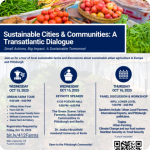
- Various
- 1:00 pm to 3:00 pm
- WPU, Lower Lounge
Final Event of this two-day event Part I: Panel Discussion Moderator: Randall Halle, European Studies Center Panelists: Dr. Patrick Shirey — Geology and Environmental Science, University of Pittsburgh Lisa Freeman — Freeman and Family Farm State Representative Emily Kinkead, PA House District 20, Chair of the Legislative Hunger Caucus Dr. Jesko Hirschfeld — Humboldt University of Berlin Part II: Breakout / Discussion Groups Group A: Urban Farming Challenges and Opportunities Group B: Climate resilience strategies in cities Group C: Ensuring nutrition security for vulnerable populations **Lunch will be provided
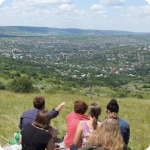
- 1:00 pm to 2:30 pm
- Global Hub, Posvar Hall
Interested in studying, researching, or teaching abroad? Join American Councils for International Education to learn about opportunities across Eurasia, East Asia, and beyond. Programs emphasize advanced language study, area expertise, and cultural immersion. Opportunities for faculty and undergraduate & graduate students: - Explore summer, semester, and year-long options - Learn about fellowship, scholarship, and financial aid opportunities - Connect programs to UCIS global and area studies Discover how you can build language skills, expand research, and engage globally with the support of Pitt's University Center for International Studies and American Councils.

- 5:30 pm to 7:30 pm
- American Jewish Museum, JCC of Greater Pittsburgh, 5738 Forbes Ave, Pgh, PA 15217
This powerful exhibition features 36 striking images that trace the remarkable journeys of eight European photographers who, facing Nazi persecution in the 1930s and ’40s, used their cameras as tools of escape, survival, and reinvention. Curated by: Deborah Dash Moore Jonathan Freedman Distinguished University Professor of History & Judaic Studies, University of Michigan Louis Kaplan Professor of History and Theory of Photography and New Media, University of Toronto Exhibition will be on view from August 20, 2025-Jan 30, 2026
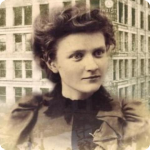
- 6:00 pm to 7:30 pm
- via Zoom
This professional development workshop series is designed for K-12 educators seeking to deepen their understanding of global issues through literature. This year, we will explore the theme of “The U.S. in the World.” Through global and regional perspectives, we will discuss narratives of a “Global United States,” where the U.S. role in the world and its relationship with other countries and regions is informed by transnational narratives and dialogues shaped by global trends such as migration, environmental issues, human rights, and human conditions. By exploring compelling stories from diverse cultural perspectives, educators will gain insights into the complexities of this theme, its impact on individuals and communities, and how to engage students in meaningful discussions around these topics. Each session features a carefully selected book, paired with historically contextualized presentations, interactive discussions, teaching strategies, and cross-disciplinary activities to inspire classroom implementation. Sessions this year will take place virtually on Thursday evenings from 6:00-7:30 p.m. (ET). Three Act 48 credit hours (for PA educators) and a copy of the book are provided for each session. The October 23 workshop will focus on the book, "Ashes of Rose," by Mary Jane Auch. For more information and to register, please go to: https://www.ucis.pitt.edu/global/GILS
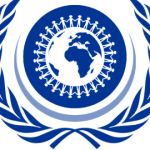
- 8:00 am to 4:00 pm
- William Pitt Union and O'Hara Student Center, Pitt-Oakland Campus Model United Nations high school simulation

- Various
- 2:30 pm to 4:00 pm
- WPU, Lower Lounge
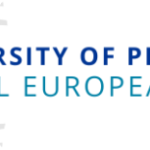
- 8:00 am to 4:00 pm
- William Pitt Union simulation, European Union
The High School Model European Union is an annual event for area high school students. The goal of the Model EU is to give high school students a chance to learn about the workings of the European Union through a hands-on simulation. Playing the roles of presidents and prime ministers, students spend a day engaged in intense negotiations over conflicting issues about the EU. The objective is to simulate a specific European Council meeting that focuses on recent current events impacting the EU. Model EU enhances students’ understanding of classroom learning and gives them a real sense of the challenges involved in the decision-making process of the European Union.

- Claire Meachen
- 5:30 pm to 6:30 pm
- Global Hub

- Chiara Montera
- 1:00 pm to 2:00 pm
- Global Hub

- Molly McSweeney
- 3:00 pm to 4:00 pm
- Global Hub
Attention: Undergraduate students! Are you looking to gain experience that will help prepare you for a globally-connected job market? Stop by Drop-In Hours to learn more about getting the Global Distinction added to your academic transcript, receiving special recognition at graduation, and standing out to prospective employers!

- Baiming Liu
- 6:00 pm to 7:00 pm
- Global Hub
Join the French Club on Tuesdays and Wednesdays from 6-7 pm during Fall semester for conversational meetings and to practice French speaking and listening skills and create a francophone community on campus! UPDATE: On September 10 (only), the French Club and the French Department will have a joint event in the Global Hub, from 5:30 to 7 pm. The French Club will meet twice weekly, on Tuesdays and Wednesdays, during Fall 2025, EXCEPT on November 25 and November 26.
